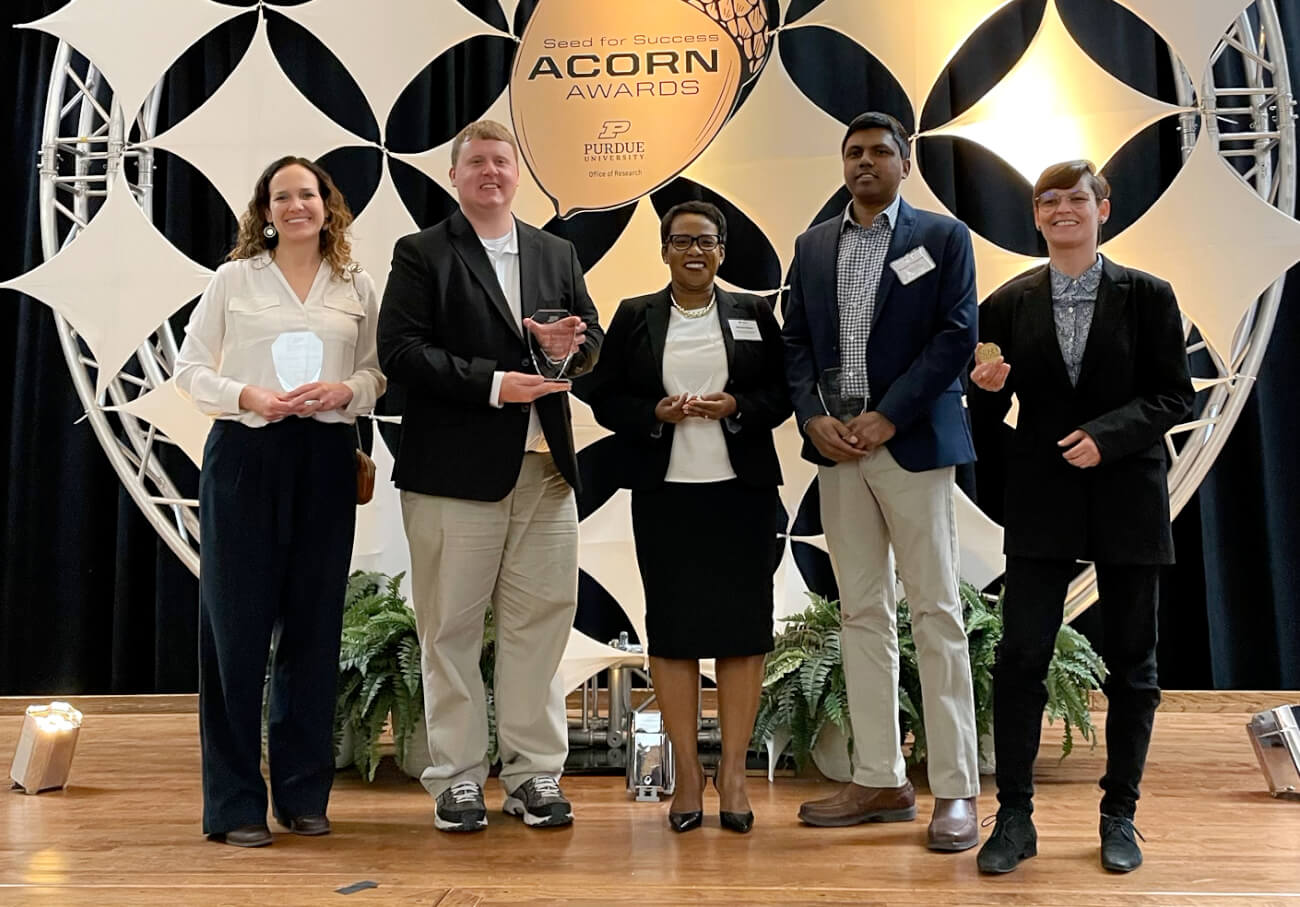When Purdue University’s Office of Research honored the accomplishments and innovative ideas of a host of researchers this week, several Purdue Veterinary Medicine scholars were among those recognized. At a ceremony Wednesday, November 14, in the Purdue Memorial Union North and South Ballrooms, the annual Seed for Success Acorn Awards were presented to Purdue Principal Investigators (PIs) and co-PIs who secured research awards of $1 million or more for a single proposal in fiscal year 2024.
University leaders conferred the prestigious awards on a total of 275 Purdue researchers at the ceremony, which was followed by a reception, where guests were able to meet and visit with the award recipients. Congratulations to the Purdue Veterinary Medicine honorees, who are listed below in bold font with their qualifying grant and co-investigators (the names of Principal Investigators are underlined, and an asterisk indicates a first-time Acorn Award recipient):
Marsha Baker*, Willie Reed. Vet Up! The National HCOP Academy for Veterinary Medicine. Health Resources and Services Administration. $3,225,879.00.
G. Kenitra Hendrix*, Craig Bowen*. National Animal Health Laboratory Network Support Funding. Animal Plant Health Inspection Service. $1,000,000.00.
Timothy Ratliff, Philip Low, Jiang Yang. Therapeutic Targeting of Bone Hydroxyapatite in Multiple Myeloma. Paula and Rodger Riney Foundation. $2,112,173.00.
Shankar Thangamani*. Mechanisms of Candida auris Colonization in the Skin. National Institute of Allergy and Infectious Diseases. $2,390,065.00.
Jason Cannon, Uma Aryal, Jean-Christophe Rochet. Mechanisms of PhIP-Induced Dopaminergic Neurotoxicity. National Institute of Environmental Health Sciences. $1,563,395.00.
Chi Hwan Lee, Bryan Boudouris, Pete Kollbaum, Shin Ae Park*. Smart Soft Contact Lenses for Continuous 24-Hour Monitoring of Intraocular Pressure in Glaucoma Care. The National Eye Institute. $2,177,089.00.
Andrea Kasinski, Nadia Lanman, Philip Low, Andrea Pires dos Santos. Ligand-Mediated, Vehicle-Free Delivery of Small RNAs. National Cancer Institute.$1,930,108.00.
Last year, Purdue received more than $647 million in research funding, a 6% increase over fiscal year 2023 and a 102% increase from fiscal year 2013. The university has an overall sponsored program portfolio of $3.1 billion and manages thousands of research projects annually focused on creating innovative solutions that help to provide a safe and secure nation and livelihood for all. Click here to view the full list of 2024 Seed for Success Acorn Award recipients.

